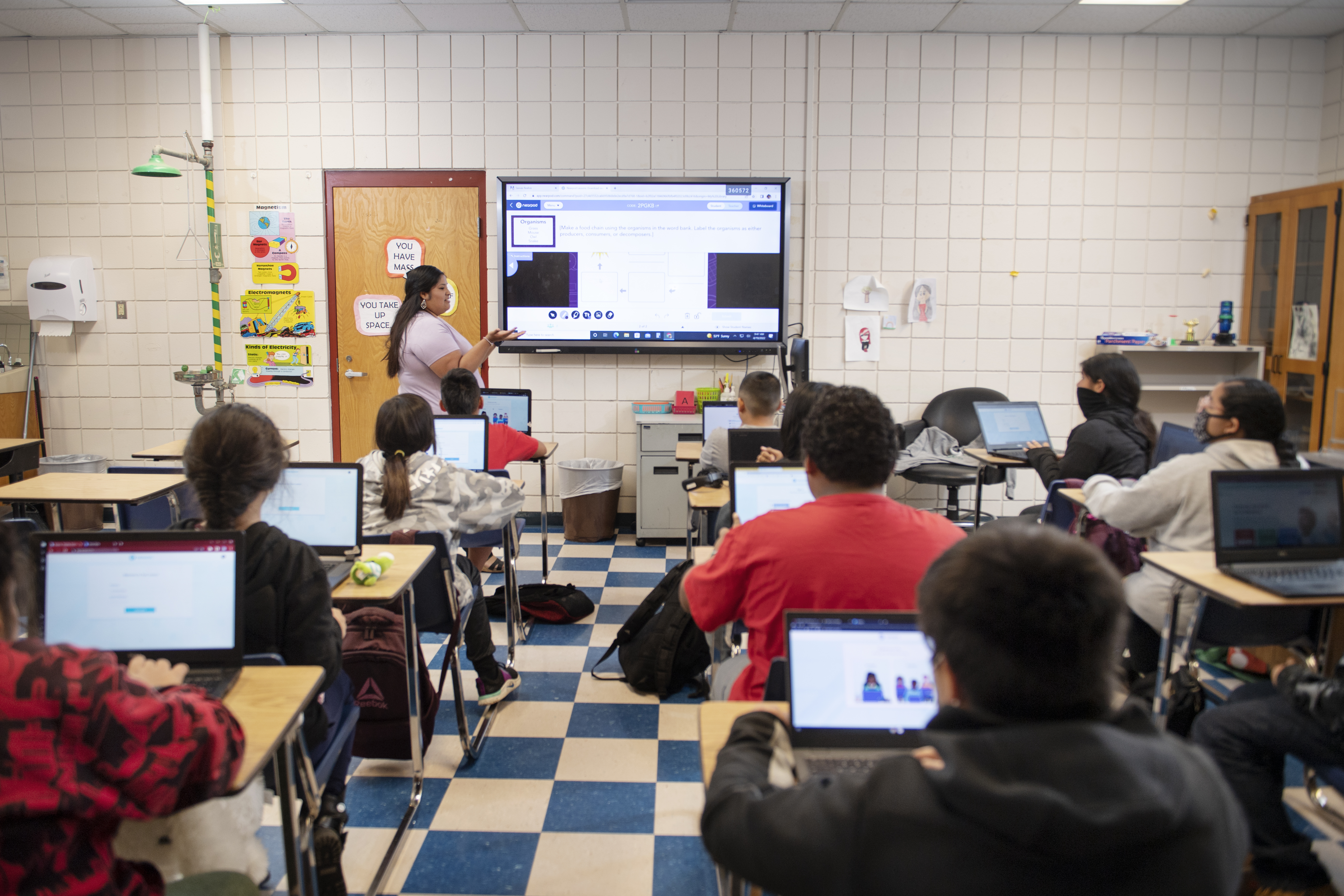Story by Camille Carskdon, MSU College of Education
STARKVILLE, Miss.— Ashland “Coby” Willis knows a thing or two about family. For her, it’s something that stretches beyond those who share her household to include the whole Mississippi Band of Choctaw Indians. Without that family, she says she might never have become part of MSU’s.
that family, she says she might never have become part of MSU’s.
“My tribe has done everything to support me,” Willis said. “I’m so thankful for my tribe.”
As a new mother in 2009, Willis said her goal was simply to find a job to support her family. That desire led her to an associate degree and into a classroom as an assistant teacher. Then, her extended tribal family did its work. The urging of her principal gave her the idea of going back to school. A chance encounter with the program director of the Choctaw Tribal Scholarship program gave that idea a way forward. Willis soon enrolled in the Division of Education at MSU-Meridian with a full scholarship from the Teacher Initiative Program, which enabled her to pursue a bachelor’s in elementary education.
“The tribe’s teacher initiative is what allowed me to become a teacher, and teaching is my way of giving back to my tribe,” explained Willis, who now has four children with her husband Poncho. “My kids are my reason for doing all of this. And I don’t just mean my biological children, I mean my nieces, nephews, cousins and all my school babies, of course. It’s the kids all around me, in my community and my tribe, they’re my reason for doing everything.”
Having earned her degree in 2019, Willis is now a science teacher for fourth through eighth grades at Tucker Elementary School in Philadelphia, the same school where her desire to serve others began years earlier. She explained that having a teacher “just be there” for her really made an impression.
“I remember going to school one day and being so upset,” Willis said, explaining that her father—who raised her as a single parent—wasn’t the best at fixing her hair. “My teacher, Karla Russell, saw how upset I was, pulled me aside and fixed my hair how I wanted it. She showed me that she cared and that’s what made me begin to think that I wanted to be of service to others.”
Willis said Mississippi State further fueled that passion for service as she moved deeper into her undergraduate education. She said the curriculum’s focus on establishing and maintaining mutual respect with her students was one of the key lessons that stuck with her. Another eye-opening concept was that not every student will learn in the same way or at the same pace and that a teacher needs to accommodate that.
“It helped me understand a lot about how kids learn and that I need to take that into account when planning my lessons,” Willis said. “It also helped me learn about myself, like if I don’t understand this, then I can’t help my kids understand it either. My MSU courses also taught me to be flexible within my classroom,” Willis continued. She explained that teaching at a tribal school means many of the students come from homes where the Choctaw language is what’s spoken, which can make switching to English for school challenging. Willis said she sometimes has to explain things in both languages to get the concept across, but no matter how she has to teach it, it’s rewarding when a student who has been struggling begins to understand.
“Mississippi State prepared me to recognize that my students are all different types of learners who need to be taught in different ways,” Willis said. “I think that’s what has helped my success as a teacher and getting my students to be great learners.”
Willis works to get her students excited about learning and the world. At the end of every class, she pulls up Google Maps, with its street-view capabilities, and lets students pick a place they want to explore. In 2020, she earned a $5,000 grant from the Society for Science that allowed her to provide each student with hands-on science activities while they learned from home during the height of the COVID-19 pandemic.
She said her goal is to help them feel support for their dreams and academic pursuits. But she also wants them to feel supported emotionally. Willis said she believes that, ultimately, the key to having a successful classroom is showing the students that you care about them both in school and away.
“I have a wall in my room where my students write important dates to them,” Willis explained. “If it’s an event that I’m able to attend, I do and that has built the rapport between my kids and me.”
Willis is currently working toward a master’s in counselor education at MSU-Meridian—a natural step in her desire to positively impact her students’ lives. Already an active member in her community as president of both the Tucker Development Club and the Tucker Elementary School Parent-Teacher Organization, she said she believes studying school counseling only furthers her ability to relate to her students and better serve her community. Willis said her background already resonates with her students because it is so like what her students are experiencing. By becoming a counselor, she hopes to reach even more children and be a positive force in their lives.
“I just want to be that someone for them. That person who has also been through it, and can show them it will be OK,” Willis said. “I want to help them and let them know that they’re not alone. They can see that, ‘Hey, Mrs. Coby went through that too, and look at how far she’s come.’ And they can do it, too. I always say, it’s their turn to be even better than me.”
 that family, she says she
that family, she says she